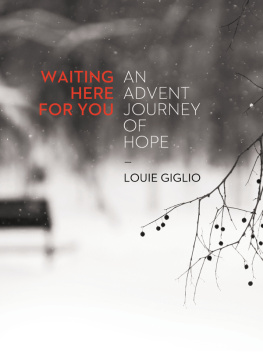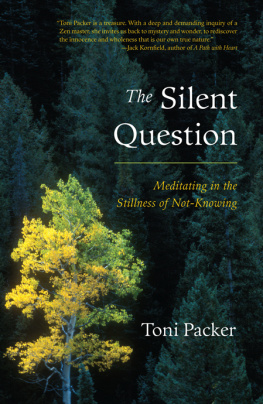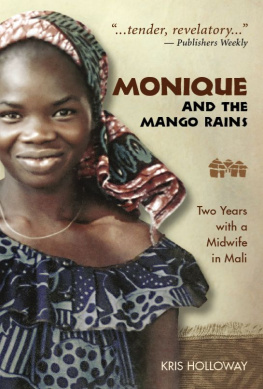Contents
Guide

The author and publisher have provided this e-book to you for your personal use only. You may not make this e-book publicly available in any way. Copyright infringement is against the law. If you believe the copy of this e-book you are reading infringes on the authors copyright, please notify the publisher at: us.macmillanusa.com/piracy.
For my mother
Was even he perhaps another person, an unknown and still unmade young man whom chance and time had thrust down there under those yellow animal eyes, those black eyes of women and men and children so that he might find himself in otherness, in the other-than-self, so that he might discover history outside of history, and time outside of time, and the original pain of things, and himself, outside of the mirror of Narcissus pool, in men, on the arid earth?
Carlo Levi
Christ Stopped at Eboli
To be African is to be a bastard. The heart of Africa is metamorphosis.
Breyten Breytenbach
The True Confessions of an Albino Terrorist
There are several debts which I cant pay back but want to mention anyway. Kate Hovde was a part of this story in ways only she and I know. Michelle Burch and Tim DiLaura provided friendship throughout my time in Togo, and in Boston, David Miller shared an obsession with Africa and literature during difficult months of the writing. Nancy Packer and Gail Perez read the entire manuscript; they were as acute and supportive as any critics I could ask for. Becky Saletan of Vintage Books and Bob Lescher, my agent, took a chance on a book by a fledgling writer about an obscure place.

In the winter of 1984, I answered a help-wanted ad in the Boston Phoenix, and was offered a chance to try out for a job as a carpenters apprentice. The terms were simple: another guy was after the same job, we would work side by side for a day, then one of us would be chosen. Our task was to paint the master bedroom of a magnificent old private house. I quickly realized that the other guy would get the jobhe had a neat, steady hand, while I was clumsy with the brush and got paint where it didnt belongbut I was glad for his company. His name was George Packer, and he had returned to America three months earlier after spending eighteen months as a Peace Corps volunteer in the tiny West African country of Togo, where he had lived in a peasant village in the bush, teaching English to school children. In Togo, he had endured a bad case of malaria, and although his body had recovered, he told me that his encounter with Africas impoverished condition had also infected his soul with a sort of feverish turmoil that he did not know how to purge except by writing.
I had never been to Africa when I met Packer. I had never even heard of Togo before. A tremendous blizzard was blowing through Boston that day; heavy wet snow snapped huge branches from the trees; the light was dim and mercurial; Africa felt infinitely remote, and it was clear that Packer experienced that distance as a heavy burden when he sought to account for where hed been. Having known Togo through the lens of the world he came from, he had returned home to discover that he now saw our world through the lens of his journey. How, he wondered, could he express the tension between these two worlds, and at the same time make real his acute sense that neither could properly be known or understood except as reflections of one another?
We can give thanks that he did not shrink from the challenge. That winter, as he settled into learning his trade as a carpenter, he simultaneously dedicated himself to a rigorous writing routine. Four years later, in 1988, he published The Village of Waiting, a book that remains as engagingly fresh and keen and intelligent today as it was thenwith the added advantage of having endured age so well that it can safely be called a classic of twentieth-century Western literature on Africa.
* * *
The best works of nonfiction tend to defy easy categorization, and indeed they so exceed the confining scope of any topical subgenre that they are best described simply as very good books. Packers book meets that standard. It is at once a memoir, a travelogue, a history, a piece of political reportage, and a probing critique of Western meddling in postcolonial Africa and of the corruption and folly of the continents own predatory rulers. Even when his outrage is evident, Packer retains a levelheadedness that might make George Orwell proud, and the seriousness and sympathy that he brings to his subject is consistently sharpened by wit and an unapologetic sense of the absurd.
For too long now, it has been difficult for new readers to buy copies of The Village of Waiting not only because it has been out of print, which it is no longer, but because people who own it dont like to part with it. It is one of those rare books that hardly ever found its way to secondhand bookstores, and even with the advent of used-book searching on the Internet, it has been blessedly difficult to rustle up a copy. With this new edition, that problem is solved, and a new generation of readers can now make a permanent addition to their shelves. Yet, in celebrating the fact that this precocious young mans book has an enduring timelessness as literature, it must also be recognized that the book remains timely for the saddest of reasons. As Packer makes clear in the afterword to this new edition, little has changed for the better in Togo in the nearly twenty years since he first set foot there, while a great deal has changed for the worse. In this respect, the country is typical of most of Africa.
* * *
The name of the village where Packer lived in Togo is Lavi. In the local language, the name means wait a little longer, and it hardly seems surprising that the local word for tomorrow also means yesterday. In the present, as the title of one chapter puts it, You Get Up, You Work, You Sleep, and it is this life, measured by the natural cycles of crop failure, illness, and death, that gives Packer his strongest pages. The old village chief and his successor, women of the household hearth and the market, his fellow schoolteachers and his students, a prostitute, a self-mockingly ambitious intellectual returned from a tour as an exotic in the United States, a student dissident with no prospects but suicidethese are just some of the people whose tales Packer delivers with insight, compassion, and narrative grace. He is keenly aware that noble savagism is as suspicious as the other kind of racism, and his unsentimental portraits invariably return Togo to the Togolese.
Shortly after Packer arrived in the country, in 1982, a friend told him: If you feel alienated because you dont understand how things work in Togo, wait until you do. These words might serve as an epigraph to his book. Rejecting Isak Dinesens famous declaration in Out of Africa, Here I am, where I ought to be, Packer eschews the romance of adventurism and the ideology of development work to describe the postcolonial white mans position on the continent as one of irrelevance, impotence, and contradiction.
The Peace Corps is now in its fortieth year, and the worlds inequalities remain as stark and unforgiving as ever. But whether or not Peace Corps volunteers have made a difference to the development of others, there can be no question that their contact with these others has had an abiding effect on their own development. That is certainly true of George Packer. Sent to Togo as an educator, he found an education.


















